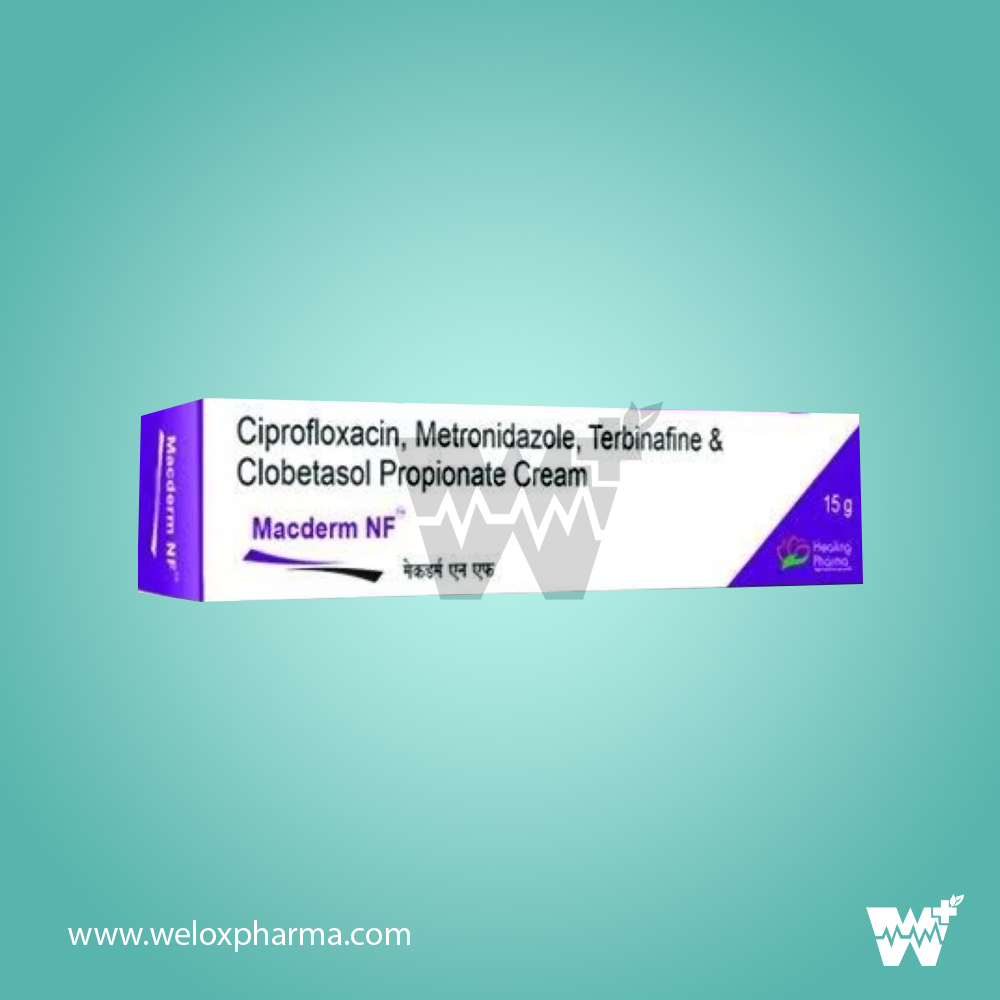



Introduction to Macderm NF Cream:
Macderm NF Cream is a combination medication used to treat various types of skin infections. It alleviates symptoms of inflammation such as redness, swelling, and itching. Additionally, it exhibits antimicrobial activity against infection-causing microorganisms.
Administration of Macderm NF Cream:
Macderm NF Cream is intended for external use only and should be used as directed by your doctor. Apply a thin layer of the medication solely to the affected area of the skin with clean and dry hands. If it comes into contact with your eyes, nose, mouth, or vagina, rinse thoroughly with water. It may take several days to weeks for your symptoms to improve, but you should continue to use this medication regularly. Completing the course of treatment is essential to ensure the optimal effectiveness of the medication. If your condition does not improve or worsens, consult your doctor.
Uses of Macderm NF Cream:
Macderm NF Cream is primarily used for:
Skin infections
Benefits of Macderm NF Cream:
In Skin Infections:
Macderm NF Cream is effective in treating skin infections caused by bacteria and other microorganisms. It works by killing and inhibiting the growth of infection-causing microorganisms, thereby clearing the infection and relieving the associated symptoms. It also inhibits the release of chemicals that cause symptoms such as itching, redness, and swelling, thereby reducing inflammation caused by these infections.
Mechanism of Action of Macderm NF Cream:
Macderm NF Cream is a combination of four drugs: Ciprofloxacin, Metronidazole, Terbinafine, and Clobetasol.
Ciprofloxacin is an antibiotic that kills bacteria by preventing their replication and repair.
Metronidazole is also an antibiotic that kills other infectious microorganisms in addition to bacteria by damaging their DNA.
Terbinafine is an antifungal agent that inhibits the growth of fungi by preventing the formation of their protective covering.
Clobetasol is a steroid medication that blocks the production of certain chemical messengers (prostaglandins) that cause the skin to become red, swollen, and itchy.